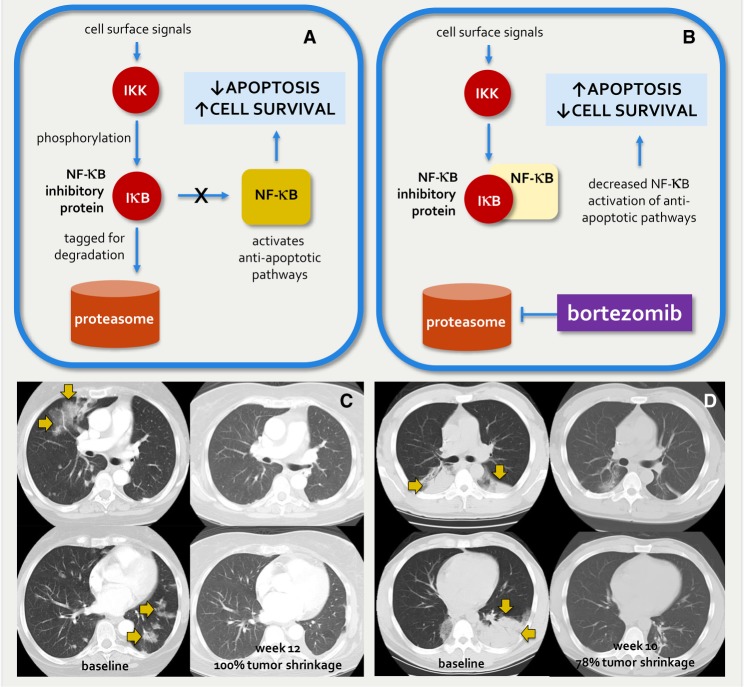Figure 1.
Rationale for bortezomib in KRAS G12D-mutant lung cancers. KRAS G12D-mutant lung cancer models are reliant on NF-κB pathway activity as shown in A. Cell surface signals cause phosphorylation of NF-κB inhibitory proteins by a noncanonical IκB kinase (IKK or TKB1). Phosphorylation tags these proteins for degradation in the proteasome, thus allowing the uninhibited NF-κB complex to induce anti-apoptotic pathways. (B) Inhibition of the proteasome by the small molecule bortezomib results in decreased NF-κB inhibitory protein degradation and increased NF-κB inhibition. The consequent decrease in NF-κB-mediated apoptosis leads to increased cell survival. Exceptional responders were observed on separate trials of bortezomib (C, ClinicalTrials.gov number NCT00117351; D, inset) for patients with advanced non-small-cell lung cancers. Molecular profiling via Sanger sequencing subsequently revealed that tumor from both patients harbored a KRAS G12D exon 2 mutation.

